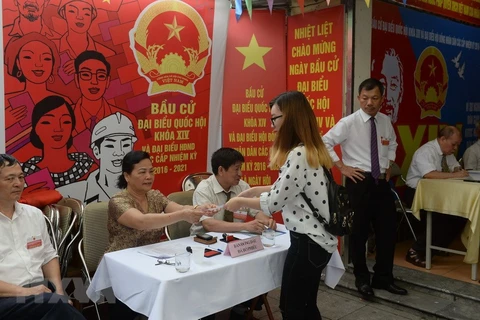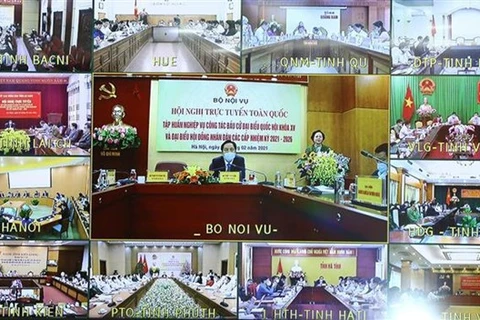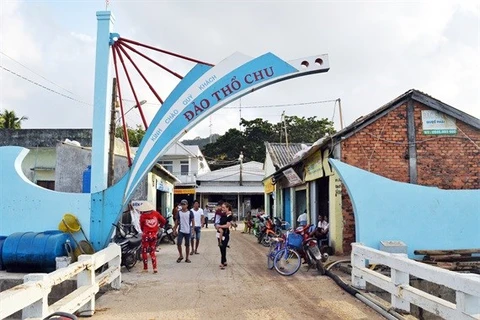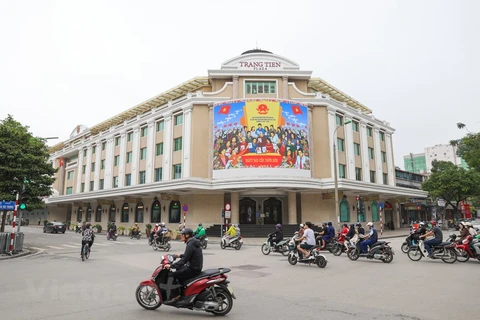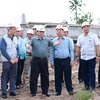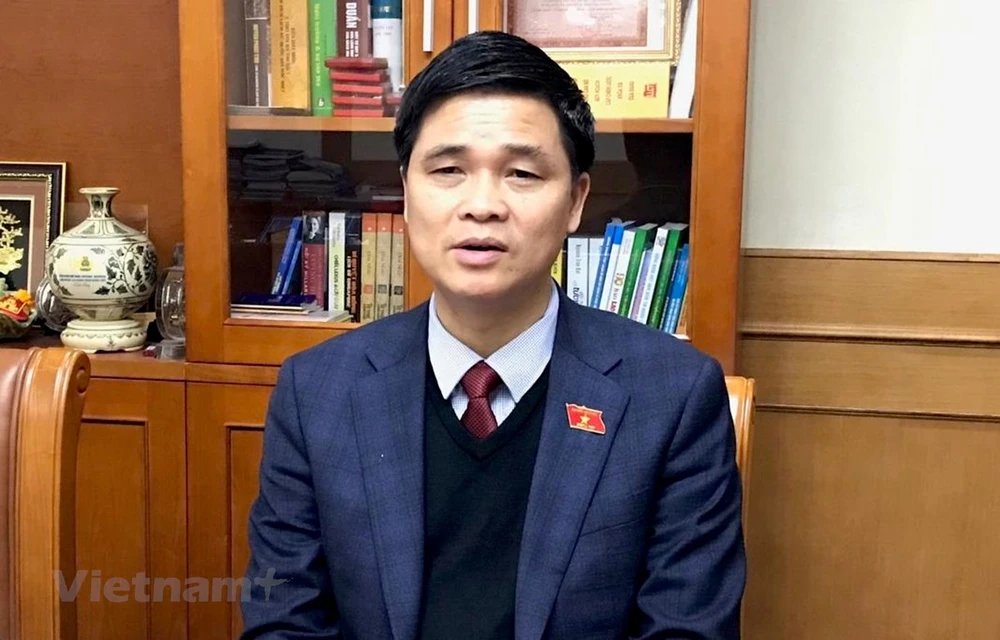
Hanoi (VNA) - Excellent and eligible full-time deputies to the National Assembly (NA) play a significant role in the legislative’s operation quality, deputy to the 14th NA and Vice President of the Vietnam General Confederation of Labour Ngo Duy Hieu told Vietnam News Agency’s reporters on the threshold of the national election day.
According to the new regulations in the make-up and the number of NA deputies in line with the Law on the Organisation of the National Assembly (revised in 2020), the number of full-time NA deputies could go up to 40 percent, aiming at enhancing the capacity of the legislative body.
“In the context of global crisis and fierce economic competitiveness, we need more full-time NA deputies who have considerable experience and vast knowledge to create the Vietnamese parliament imprints at international forums”, Hieu said.
 Excellent and eligible full-time deputies to the National Assembly (NA) play a significant role in the legislative’s operation quality. (Photo: VietnamPlus)
Excellent and eligible full-time deputies to the National Assembly (NA) play a significant role in the legislative’s operation quality. (Photo: VietnamPlus)
However, in addition to the surge in the number, the quality of the full-time deputies should be given top priority since they are a decisive factor to the efficient operation of the NA.
An instruction document on personnel for the 15th-tenure NA and People’s Committee released earlier this year from the Party Central Organisation Commission stated standards for NA deputies and full-time deputies, including education (holding a bachelor’s degree or above), age, health and working position.
Since full-time NA deputies do not have to exercise responsibilities at a specific sector, their critical thinking is expected to improve, he said, hoping the 15th-tenure NA will work more effectively and attain more achievements.
NA deputies should stay close to voters through meetings where they can grasp the voters’ expectation and aspiration, while daring to let their voices be heard by the parliament.
 Ngo Duy Hieu affirms that NA deputies should stay close to their voters, describing this primary responsibility of the deputies. (Photo: VietnamPlus)
Ngo Duy Hieu affirms that NA deputies should stay close to their voters, describing this primary responsibility of the deputies. (Photo: VietnamPlus) According to the Resolution adopted at the 13th National Party Congress, the whole nation should make utmost efforts to build a strong and prosperous Vietnam, which should become a developing nation by mid-21st century, he said, adding as the NA plays an important part in the process, it should unceasingly reform and perfect itself to improve operation quality.
“I expect the voters will be more precise in choosing their best representatives, who can speak out their voices. I hope the 15th National Assembly will make substantial reform to become a model example in the nation’s political system”.
Thorough preparations are underway for the upcoming election of deputies to the 15th National Assembly (NA) and people’s councils at all levels in the 2021-2026 tenure.
As an important political event, the elections offer an opportunity for people to exercise their right to mastery and vote for virtuous and talented deputies who represent the people’s will and aspirations to the NA and all-level people’s councils, thus contributing to building, consolidating and completing the rules-based socialist State of the people, by the people, and for the people, under the leadership of the Communist Party of Vietnam (CPV), said Party General Secretary and President Nguyen Phu Trong.
Voters nationwide will choose 500 out of 868 candidates for the 15th National Assembly on May 23.
In accordance with the Law on the Election of Deputies to the National Assembly and People’s Councils, the National Election Council (NEC) announced the official list of candidates during a press conference on April 27.
Throughout a five-step process with three rounds of close, democratic, cautious, and non-discriminatory consultations, the list of candidates for deputies to the 15th NA and all-level People’s Councils for the 2021-2026 tenure has been finalised.
Following the second consultation held by the Presidium of the Vietnam Fatherland Front (VFF) Central Committee, the NA Standing Committee on March 28 issued a resolution on a second revision of the structure, components, and number of nominees for seats in the 15th legislature.
Of the candidates, who will be elected in 184 constituencies nationwide, 203 are nominated by central agencies and the remainders are introduced by localities. Nine of them are self-nominated candidates.
Female candidates account for 393 (45.28 percent) of the total, while ethnic minority people are 185 (12.31 percent). The number of candidates who are non-Party members is 74 (8.53 percent)./.
